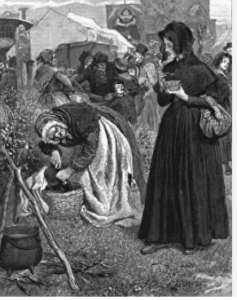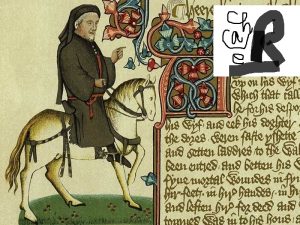The Anglo Saxon Period (400 AD––1066 AD)
Many consider that history of English Literature started with Anglo-Saxon literature of the Angles, Saxons, and Jutes much before they occupied Britain. Before they occupied Britain, they lived along the coasts of Sweden and Denmark, and the land which they occupied was called “Angle-land. They formed small tribal kingdoms whose members lacked written language, supported themselves through farming and hunting, and believed in many different gods.
The Advent of Christianity
In 546, missionaries attempted to convert the Anglo-Saxons to Christianity. By the year 650, most of England was Christian, at least in name. although the people appeared to be intense believers in God and the church, many of them held on to their pagan beliefs and traditions.
The Danish Invasions
During the eighth and ninth centuries, other Germanic tribes attacked Britain. Danes and Normans took to the seas in an attempt to win Britain by force. By the middle of the ninth century most of England had fallen to invaders. However, the tide was turned in 878 when Alfred, the Saxon king of Wessex, led his warriors to victory over the Danes in the Battle of Edington. Alfred went to capture London and, eventually, much of England. For these and other feats, Alfred was called “The Great,” Later, Alfred’s son and grandson won back all of England from the Danes, and the country was at peace.
Literature of Anglo-Saxon Times
The Anglo-Saxon era left a rich legacy of language and literature. The two most important influences on Anglo-Saxon (Old English) literature were the Germanic traditions of the Anglo-Saxons and the Christian traditions of Roman church.
1. Germanic Traditions
The Anglo-Saxons brought their German language, religion, warrior culture, and oral literary tradition to Britain. All of these elements provided a foundation for early written literature in Old English.
- Language: The early Anglo-Saxons spoke various Germanic dialects, a mixture of which formed the basis of Old English. To present day readers of English, Old English like a foreign language.
- Oral traditions: Anglo-Saxon storytellers created heroic verses glorifying earthly virtues and concerns, such as bravery and loyalty, which were crucial to Anglo-Saxon life. The early Anglo-Saxons developed a rich oral tradition of songs and stories about the valiant struggles of heroic warriors. This heroic literature counted for more than entertainment.
2. Christian Teachings
As Christianity spread through Anglo-Saxon England, Christian monks established libraries and schools within their monasteries, where they emphasized the importance of the written words—especially, of the Bible. Their emphasis on scholarship and teaching resulted in the Anglo-Saxon monk Bede’s “Ecclesiastical History of English People”, and other religious and historical writings. The work of such monks also resulted in the preservation of much of the Old English literature that survives today.
#the anglo saxon period #the anglo saxon period #the anglo saxon period #the anglo saxon period #the anglo saxon period #the anglo saxon period
Read More
The Anglo Saxon or Old English Period (Timeline & Major Events)
Visit Us on our Facebook Page:





